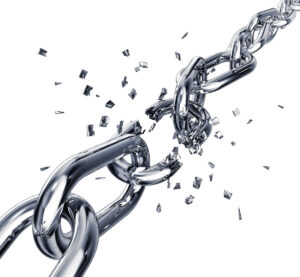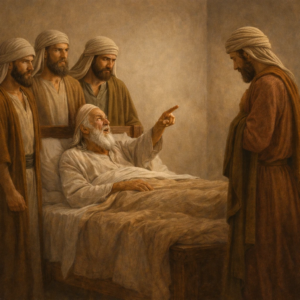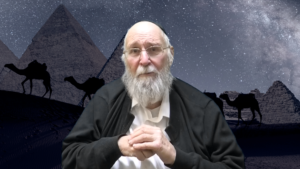- Faith ⬦ Read ⬦ Shabbat ⬦ Weekly Torah Portion
Parshat Vayakheil – Pekudei – Chazak!
Shabbat is considered to be a “taste” of the World to Come, and the essence of one’s livelihood and blessing is drawn from Shabbat into the other days of the week!
This Shabbat we read two Torah portions, Vayakheil and Pekudei and complete the book of Exodus. This week’s parsha is also called “Chazak” since when we finish reading one of the books of the Torah we immediately shout out “Chazak Chazak v’Nitchazek” (“Strong! Strong! And we will become stronger!”). In addition, this Shabbat is called “Parshat HaChodesh” (The Parsha of the Month”) which is connected to the mitzvot of Passover and the month of Nissan, which is considered a beginning and the first month of the year.
We will focus this week on parshat Vayakheil. The Torah reading begins with the topic of Shabbat: “Moses assembled the entire community of the Children of Israel and said to them, ‘These are the words that G-d has commanded you to follow. For six days you shall work, but the seventh day will be holy for you; it is a complete rest for G-d. Anyone who does any work on that day will be put to death’” (Exodus 35, 1-2). Afterwards, the Torah returns to the story of the building of the Mishkan (Tabernacle). In the previous Torah portions, Terumah and Tetzaveh, the nation of Israel had been asked to make donations to the Mishkan and to prepare the Mishkan and its vessels. This week’s parsha recounts the specific details of these donations and preparations.
And here we shall ask an interesting question. If the sequence of Torah portions deals with the work of the Mishkan, why does the parsha begin with a reference to the laws of Shabbat? Rashi explains that the reason is so that we should not make the mistake of thinking that the work of the Mishkan overrides the laws of Shabbat. Thus, the parsha opens with the command that “For six days you shall work, but the seventh day will be holy for you; it is a complete rest day for G-d” so that we shouldn’t think that it is permissible to desecrate Shabbat in order to build the Mishkan. We will address this topic more fully further on.
Now we shall focus on an interesting point. The Torah commands us that “for six days you shall work.” In Hebrew the words are “sheshet yamim tai’aseh malachah.” In the word “tai’aseh” (“you shall”), the letter taf is punctuated with the vowel tzairei (making an “ai” sound) and not the vowel patach (making an “ah” sound). In Hebrew, when the letter taf is vowelized with a patach (as in tah’aseh), it signifies an active action. But when the taf is vowelized with a tzairei (as in tai’aseh), is signifies a passive action. This demonstrates that the action here is passive—as if the work happened on its own…
In order to understand this, we will summarize an explanation given by Rebbe Natan:
Shabbat is considered to be a “taste” of the World to Come. It symbolizes the mind, the highest levels of makifim or “surrounding lights” (those levels of knowledge that are beyond our comprehension) which exemplify the pleasures of the afterlife, and which come from the highest Divine Emanation or Sefirah of Keter. During the six weekdays, the mind is not enlightened, as the Torah teaches regarding the manna: “the people strolled about (“shatu”) and gathered it” (Numbers 11:8). The Zohar teaches that strolled about (“shatu”) is related to the Aramaic word for nonsense (“b’shuta”), or in Hebrew “b’shtut”, meaning without enlightenment (“daat”). Shabbat is the day that the Jewish people becomes one with the Creator; therefore, a Rav will give over the deepest Torah teachings his sons and students on Shabbat, for this is the main time for revealing new Torah insights and comprehending lofty concepts.
When a person enlightens his sons and students, he is able to eat with utter holiness and receive a “revelation of Desire” (“he’arat haratzon,” referring to a revelation of the Divine Will) when he eats. Eating on Shabbat is an elevated and spiritual form of eating, and its preciousness and importance is beyond estimation. It involves a powerful spiritual awakening of the revelation of Desire and clinging to the Creator. Thus, it is written about eating on Shabbat: “then you will delight in G-d and I will provide for you” as is explained in the Zohar (Parshat Yitro).
The essence of one’s livelihood and blessing is drawn from Shabbat into the other days of the week. As Rabbi Nachman taught, one’s livelihood is drawn from the revelation of Desire which is corresponds to revelation of the hands and the wisdom which can only be hinted at. This is the same revelation as the merging of concepts of “son” and “student.” This is corresponds to the “hints from the Sea of Wisdom,” and from there the Malchut (Kingship, which is the aspect of fear) receives the livelihood (Likutei Moharan II, 7. See the Biur Likutei Moharan, Volume 13 for a full explanation of these concepts.) Similarly, the main element of livelihood and blessing is drawn from Shabbat through the eating the Shabbat meals, which is the main pleasure of Shabbat.
Shabbat is the day that the Jewish people becomes one with the Creator; therefore, a Rav will give over the deepest Torah teachings his sons and students on Shabbat…
This is why the Zohar teaches that one should set the Shabbat table with two loaves of bread and with an abundance of foods, since the Shabbat meals bring blessings for the six days of the week, since the essence of one’s livelihood is drawn from the revelation of Desire. This occurs when there is an revelation of knowledge which illuminates both aspects of “son” and “student” when they are merged together. That is, this applies to all levels of consciousness of G-d, meaning that on the one hand, we will never even begin to grasp the greatness of G-d, and on the other, we know that G-d is always with us and that we can come close to Him because G-d strongly desires our Divine service no matter what level we are on. Then Malchut, which is an expression of awe, receives the livelihood from the hands of the Sea of Wisdom. Therefore, the pleasure of eating on Shabbat, which affects revelation of Desire and abundance, draws blessing into the weekdays, because the main aspect of one’s livelihood is drawn from the revelation of Desire.
Since on Shabbat one merits to the revelation of Desire, from where all the blessings and livelihood is drawn down into all the six weekdays, it is thus forbidden to do any work at all on Shabbat. This is because Shabbat is cessation and complete annulment. There is no action other than the total desire for the Creator. We recall this during the kiddush on Shabbat evening: “with love and will it has been bequeathed to us.” Abundance and one’s livelihood does not come through one’s actions but rather only from the revelation of Desire, which is a complete cessation from any form of action. This is what causes the revelation of Desire, abundant livelihood for Shabbat, and the six days of the week receive the influx of the livelihood only due to the blessings of Shabbat.
 The Zohar teaches that one should set the Shabbat table with two loaves of bread and with an abundance of foods…
The Zohar teaches that one should set the Shabbat table with two loaves of bread and with an abundance of foods…
Essentially, the significance of this is that the six weekdays have no influence at all on one’s livelihood, other than what is drawn from the blessings of Shabbat. We will repeat this to make this point crystal clear: There is no possibility that one’s actions during the days of the week will have any influence on one’s income whatsoever. The only factor which affects one’s livelihood during the week is the blessings of Shabbat.
This highlights for us the importance of believing that one’s livelihood is from heaven. Neither the actions that a person takes nor investing a lot of effort will yield a better return on one’s livelihood. On the contrary, the essence of one’s livelihood is enlightenment and a heavenly blessing that is drawn from the holiness of Shabbat, which is the revelation of the Desire of the Creator. This is the reason the verse describes the blessing of a livelihood as an act of will or desire: “You open Your hand, and satisfy the desire of every living being” (Psalms, 145:16).
When a person realizes this with a absolute knowledge and faith, he can draw down the blessings of Shabbat, which is the revelation of Desire of the Creator, into the actions that he carries out during the days of the week, and he can enlighten his actions with the revelation of Desire. This means that his actions will be full of blessing and abundance of desire and heavenly influence, so that even when a person works and tries to earn his income, he does not disconnect from G-d’s abundance and blessings.
One may wonder why then a person needs to work at all. We must understand that there is a hidden and important intention in the Creator’s Desire that we try to earn a living, but this is not the cause of our livelihoods. Just the opposite, we must sanctify our actions and make sure our actions are related to Desire in order to draw down the Creator’s abundance and Desire to send us a good and holy livelihood. When we merit to this and our actions are sanctified and connected with the Heavenly Desire, then we merit that all the abundance sanctifies our actions, and our actions are considered to be a expression of this Desire. When this occurs, the world of action becomes spiritual, and it is considered as if the actions and activities happen on their own.
This is the reason that we find that all the work of the Mishkan involves expressions like “The Menorah should be fashioned,” and “The Tabernacle was established,” as if these things had happened on their own, because truly, the whole act of building the Mishkan was a revelation of Desire. Everything was done with goodwill and generosity. Thus, the work of the Mishkan, despite being physically complicated, was a heavenly revelation of Desire which was so lofty that it was considered as if it was done without any physical action, as if it all happened on its own. This is the power of Desire.
Now we will return to this week’s parsha to understand these things in their context:
It is now understood why the Torah emphasized that the Sabbath should not be desecrated for the work of the Mishkan. Since the work of the Mishkan was carried out with a heavenly enlightenment of the revelation of Desire, we could have thought that such an act was not considered work. So, the Torah emphasizes that Shabbat is even higher than revelation of Desire. Shabbat is itself the source of the revelation of Desire, and thus even holy actions that involve the revelation of Desire like the building of the Mishkan are carried out only during the days of the week. On Shabbat, it is necessary to have an absolute connection to the Creator, cessation without any action—just Desire!
(According to Likutei Halachot, Shabbat 3)
- 0 comment






















